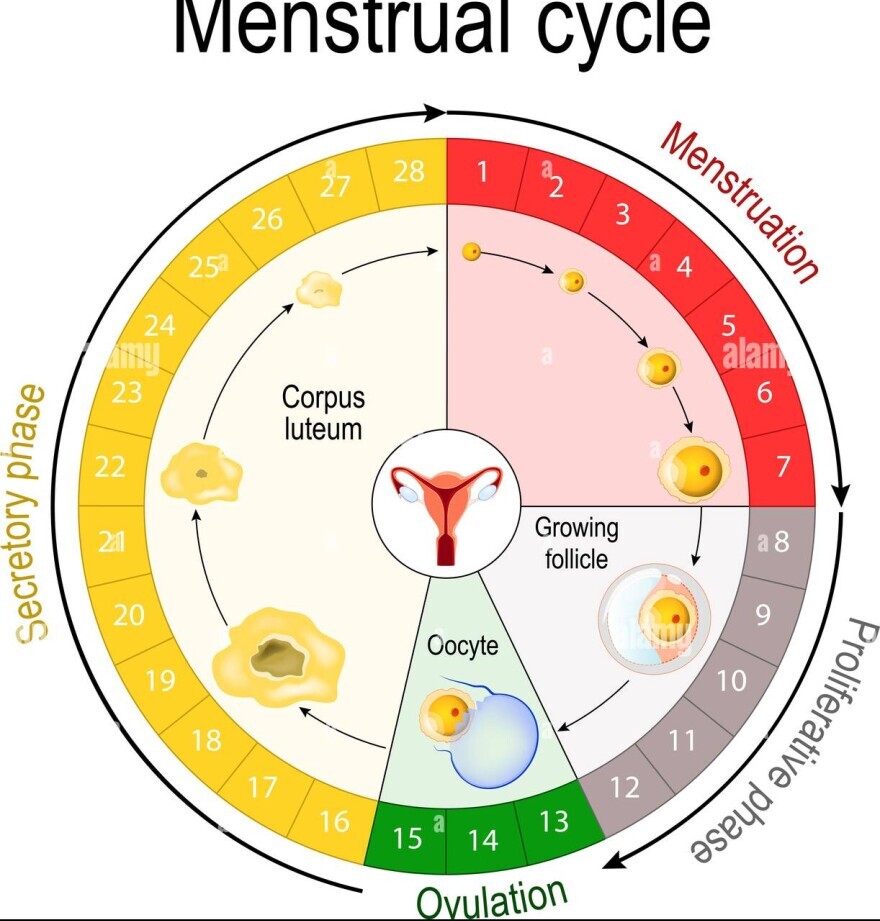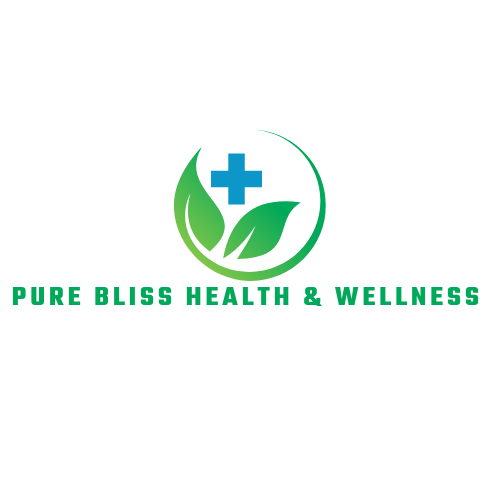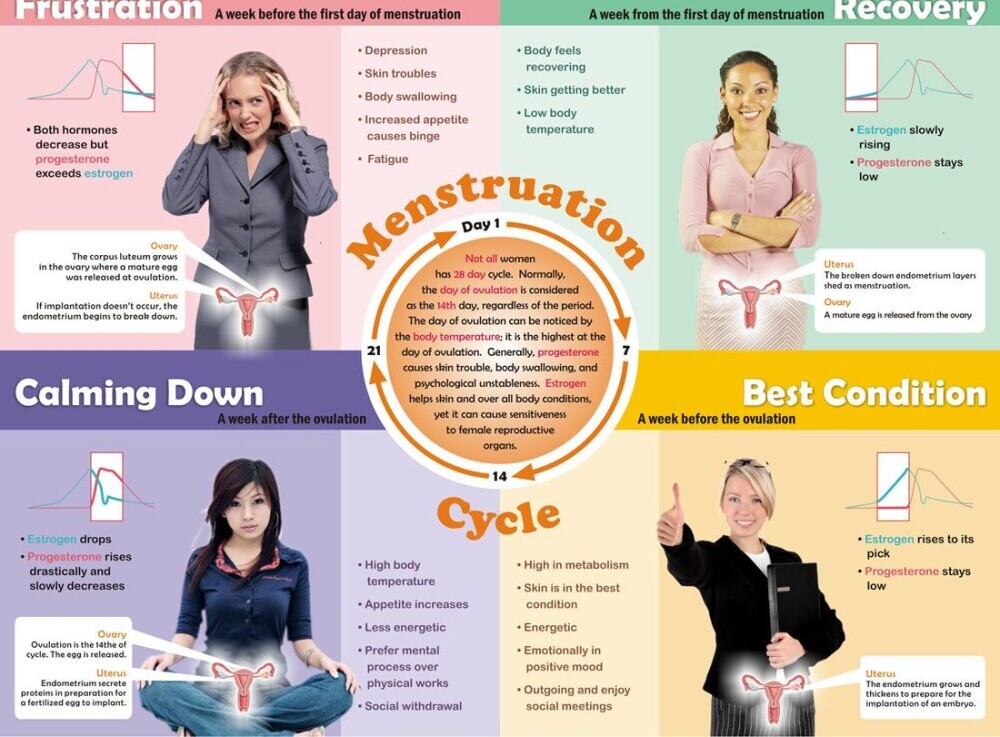Menstruation might seem like a mystery wrapped up in pain and inconvenience for many. But really, it’s a completely natural process that plays a key role in reproductive health. So, what is menstruation exactly? It’s the regular discharge of blood and tissue from the uterine lining, happening as part of the menstrual cycle.
The cycle itself is a series of hormonal events preparing the body for pregnancy each month. It usually ticks along in a predictable rhythm, but individual experiences can vary. Essentially, each cycle starts on the first day of your period and ends the day before your next period begins.
A normal cycle length for most folks falls between 28 and 32 days, but it’s worth noting that cycles can be shorter or longer without it necessarily being a cause for alarm. Knowing your own ‘normal’ is important for identifying potential issues.
What about the first period? The debut, known as menarche, typically shows up between ages 9 and 16. Every body’s clock is unique, and factors like genetics, nutrition, and health all play a role in this.
Embracing a better understanding of menstruation helps in managing it more effectively. Awareness empowers you not just to deal with the crimson tide, but also to harness information for broader health insights.
Cycle Phases: Ovulation and Beyond

Grasping the concept of ovulation sheds light on the intricate dance of hormones within the menstrual cycle. Ovulation is that magic moment when an ovary releases an egg, usually around day 14 of a 28-day cycle. It’s a crucial part of fertility, almost like a monthly opportunity for conception.
But how do you know it’s happening? Some common signs include a slight rise in basal body temperature and a change in cervical mucus, which might become clear and stretchy, similar to egg whites. Mild twinging or cramping in one side of the pelvis is also a clue.
Ovulation isn’t just for those looking to conceive. It’s an indicator of overall hormonal health, so keeping tabs on its occurrence can highlight any disruptions.
As we age, the menstrual cycle may evolve. You might notice changes in cycle length or flow as you transition through different life stages, from your 20s through to menopause. Understanding how cycles can alter with age helps manage expectations and health proactively.
Keeping track of these changes might feel daunting, but it’s all part of getting to know how your body works. It helps in crafting lifestyle choices that align with your body’s needs. Plus, it gives a heads-up on when to consult a healthcare provider if something feels off.
Tracking Your Menstrual Cycle: Importance and Methods
Keeping track of your menstrual cycle isn’t just about marking dates on a calendar; it’s a window into understanding your hormonal health. Cycle tracking can give insights into fertility, signs of potential health issues, and even moods.
Why should you bother with tracking? Well, it helps pinpoint irregularities, predict periods, and plan activities around times you might feel your best or need some extra self-care. Also, knowing your cycle helps in consults with your healthcare provider when something seems amiss.
Thanks to modern technology, tracking has never been easier. From apps that offer a personalized overview based on your inputs to good old-fashioned journaling, there’s a method that fits every lifestyle. Apps can offer reminders, predictions, and even connect the dots between your cycle and things like sleep or migraines.
Navigating common myths around cycle tracking is also important. It’s not just for people trying to conceive. Everyone who menstruates can benefit from knowing their cycle, and it’s a helpful tool for recognizing changes over the years.
Awareness of your cycle isn’t a chore but an empowering step towards well-being. Equipped with this knowledge, you can make informed choices about your health and, if needed, discuss any concerns with professional insight.
Menstrual Health Management
Managing menstrual health involves more than just dealing with monthly inconvenience. Knowing what’s typical for your cycle and body can differentiate between normal variation and something that might need attention.
So, what’s the scoop on normal menstrual flow? Most people lose about 30-40 milliliters of blood during a period. While it’s easy to freak out over fluctuating flow, slight changes are often natural. However, if you’re soaking through a pad or tampon every hour, that’s worth a chat with your healthcare provider.
Speaking of period products, there are more options now than ever. Tampons, pads, menstrual cups, and period panties each offer different benefits. The key is hygiene; changing pads and tampons every 4 to 8 hours is a good rule of thumb.
A word of caution about toxic shock syndrome (TSS): it’s rare but serious. Avoid high-absorbency tampons and keep your period products clean. If you experience high fever, rash, vomiting, or dizziness during your period, seek medical help right away.
Taking care of menstrual health is about feeling comfortable and confident through your cycle. Finding the right balance with products, tracking changes, and understanding what’s typical for your body all contribute to better overall well-being.
Menstrual Cycle and Overall Health
The menstrual cycle can provide insights into your broader health picture. Hormonal fluctuations throughout the cycle can interact with other health conditions, sometimes amplifying or muting symptoms.
For instance, those with chronic conditions like asthma or diabetes might notice their symptoms shift at different points in their cycle. Understanding these patterns can assist in managing these conditions more effectively.
Lifestyle factors can dramatically influence your cycle, too. Stress, diet, exercise, and sleep all play parts in cycle regularity and comfort. Significant changes in these areas can lead to irregularities or missed periods.
When hormonal imbalances hit, they might show up through cycle irregularities or symptoms like severe PMS. While occasional irregular cycles aren’t uncommon, consistently irregular ones deserve a closer look and possibly a discussion with a healthcare provider.
It’s essential to recognize when your cycle feels off and seek advice when something doesn’t seem right. A healthcare provider can offer insight and, if needed, tests to further investigate any underlying issues.
Managing your menstrual cycle is about more than just surviving. It’s about thriving with the knowledge that empowers you to take control of your health and makes informed choices day-to-day.
Your Questions Answered: The Menstrual Cycle FAQ
Navigating the world of periods can bring up a lot of questions, so hitting up a bunch of FAQs can be super useful. From finding out when periods first make an appearance—typically between 9 and 16 years old—to understanding how long this menstruation thing usually sticks around (up to menopause, often in the late 40s or early 50s).
We’ve walked through how to track your cycle, manage your menstrual health, and recognize potential issues. Still have questions? That’s perfectly normal. Finding support from reliable sources and speaking to healthcare professionals can really help put minds at ease.
Starting with robust resources like health websites or community groups can provide additional insights and ensure you’re not left in the dark. Sharing experiences and questions, no matter how small they might seem, can lead to clearer understanding and, sometimes, much-needed relief.
Arming yourself with information and reaching out when unclear brings knowledge, comfort, and empowerment all at once. It’s all about developing a positive, informed relationship with your cycle that supports your holistic well-being.

